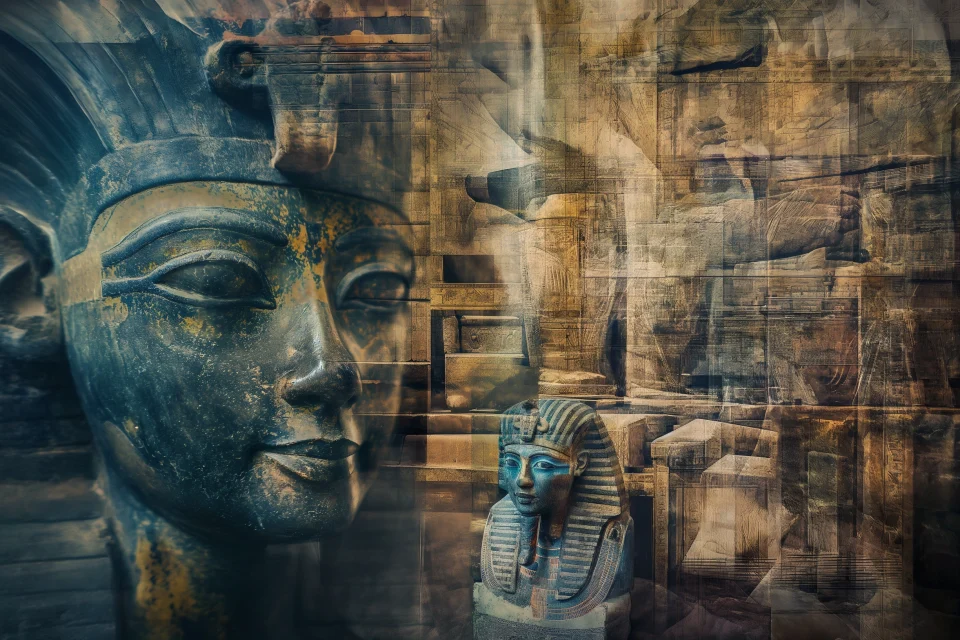Ancient wisdom: Illuminating Paths to Enlightenment

Ancient wisdom refers to the knowledge, insights, and teachings shared and passed down from one generation to another. This knowledge has inspired comprehension and wisdom in navigating through the adversities and complexity of life. In a fast-moving contemporary globe, the ancient tradition appears to be quickly replaced with technology and innovation. However, many are returning to the ancient philosophies and spiritual teachings, as they believe that ancient teachings are still valuable and can still be applied to our lives.
The Power of Stoicism: Finding Inner Peace Amidst Turmoil

In conclusion, Philosophy of Stoicism, which was formulated in ancient Greece, provides valuable reflections on life and the drive to everlasting peace. From the ideas of Greek philosophers like Epictetus, Marcus Aurelius, and Seneca, Stoicism is identified as a mode of living that promotes composure towards the tough circumstances and the character qualities essential to overcome those situations. With the stoic philosophy, one can easily direct their focus on what is in their power, recognize the passage of time, and gain peace in their own minds and emotions wdbos.
The Wisdom of Taoism: Embracing the Flow of Life
Taoism, a Chinese philosophy of ancient origin that can be traced back to the works of its deified founders, Laozi and Zhuangzi, espouses the idea of achieving harmony with the cosmic flow. The foundation of Taoist philosophy is the principle of wu wei or effortless action, which calls on people to refrain from fighting the flow and become one with it and act spontaneously. Through discarding the desires of the ego and the need for excessive control, the Taoist philosophers sought to realize a state of inner balance that was in harmony with the flow of life and the rhythm of nature. Taoist principles and practices, from meditation to qi gong and contemplation of philosophical verses, can help individuals learn more about themselves and their essential role in the world.
The Teachings of Buddhism: Cultivating Compassion and Mindfulness
Today’s major world religions Buddhism emerged from ancient India and was widely spread by the sage Siddhartha Gautama. Buddhism offers deep insights into the nature of suffering and the way to the end of suffering. The primary Buddhist teachings are based on the Four Noble Truths and the Noble Eightfold Path, which describe the causes of suffering and the way to transcend it. Buddhists cultivate qualities such as compassion, mindfulness, and moral righteousness to relieve the pains of the mind and ultimately reach a state of complete liberation and peace called “nirvana”. Buddhism also teaches various meditation techniques and devotes to help followers commence a journey of self-discovery and spirituality.
The Wisdom of Indigenous Traditions: Honoring the Earth and Ancestors
Indigenous cultures worldwide have a plethora of ancient wisdom due to their unity with the land and the spirits of their ancestors. Whether it be the wise words of Native American chiefs or stories of the Australian Aboriginal dreamtime, indigenous teachings lead Sacred lessons on how to live on this Earth in peace and harmony with all beings. When one listens to the wisdom of indigenous traditions, they can learn valuable lessons in sustainability, community, and that all beings are part of a larger whole. Through rituals such as honoring the ceremonial dance to the importance of storytelling and the retention of traditional teachings, we gain even more respect for the information and wisdom passed down from other’s cultural roots.
Embracing the Wisdom of the Ages

In conclusion, ancient wisdom creates a guiding light amidst the complexity and chaos of modern times. From Stoicism to Taoism, Buddhism, and indigenous wisdom, exploring ancient teachings opens up a wealth of knowledge about the human experience and the quest for meaning and joy. May we always remember the wisdom of our forefathers as we face the complexities of the modern world, and may their teachings support and uplift us as we explore our own internal worlds and spiritual growth. Through the wisdom of the old, we can manifest serenity, resolve, and unity in ourselves, in each other, and in the planet.
